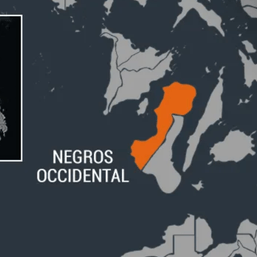SUMMARY
This is AI generated summarization, which may have errors. For context, always refer to the full article.
House Minority Leader Bienvenido “Benny” Abante on Wednesday, August 4, said death penalty is “not costly” even in the face of warnings it could lose tariff perks from the European Union in a €1.9-billion market.
“The death penalty is not cruel, neither costly,” Abante said in his sponsorship speech on Wednesday as the House justice committee revived hearings on death penalty bills, slammed by their own colleagues as unnecessary distractions from responding to the coronavirus pandemic.
Abante said that without the death penalty, Filipinos effectively fund through their taxes “murderers, robbers, rapists, kidnappers, hijackers, plunderers, drug lords, drug pushers, etc in prison.”
“How much does the government spend for one convict serving life sentence or reclusion perpetua in prison? How much is lost because of the death or destroyed life or family of just one victim of a convict? I submit that the death penalty is not cruel, neither costly,” said Abante.
Abante did not present hard data.
The Philippines is a state party to the 2nd protocol of the International Covenant on Civil and Political Rights (ICCPR) which says “no one within the jurisdiction of a State Party to the present Protocol shall be executed” and that “each State Party shall take all necessary measures to abolish the death penalty within its jurisdiction.”
Losing tariff perks
Human Rights Commissioner Karen Gomez Dumpit said during the hearing that the Philippines actually stands to lose trade incentives if we pass the death penalty law.
The Philippines has a trade agreement with the European Union (EU), under which the country has a Generalized Scheme of Preference Plus (GSP+) status where “we enjoy zero tariffs.”
In the latest assessment report of the GSP+, Dumpit said “the reintroduction of the death penalty would be a major step backwards and raise questions regarding the Philippines’ international commitments.”
“The reinstatement of the death penalty may cause the withdrawal of benefits,” said Dumpit.
Dumpit said preserved tuna is a major export to the EU and if the Phiippines loses its GSP+ status, “tuna exporters would be required to pay 20.5% tariffs.”
Dumpit said in 2018, the EU imported €1.9-billion worth of products under GSP+, including coconut oil, pineapple products, footwear, optical products, and electrical machinery.
“At this point in time that we are in the pandemic, we cannot afford the repercussions that the reinstatement of death penalty will cause,” said Dumpit.
Justice Assistant Secretary Nicholas Felix Ty said the Department of Justice (DOJ) is “not yet convinced” that the reimposition of death penalty will lead to concrete economic consequences under GSP+. – Rappler.com
Add a comment
How does this make you feel?








![[OPINION] The First Mode conundrum](https://www.rappler.com/tachyon/2024/03/tl-first-mode-conundrum-03232024.jpg?resize=257%2C257&crop=283px%2C0px%2C720px%2C720px)

There are no comments yet. Add your comment to start the conversation.